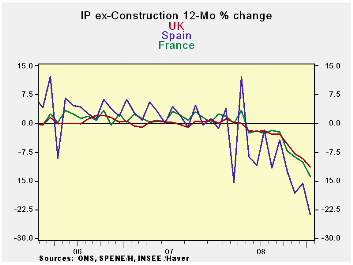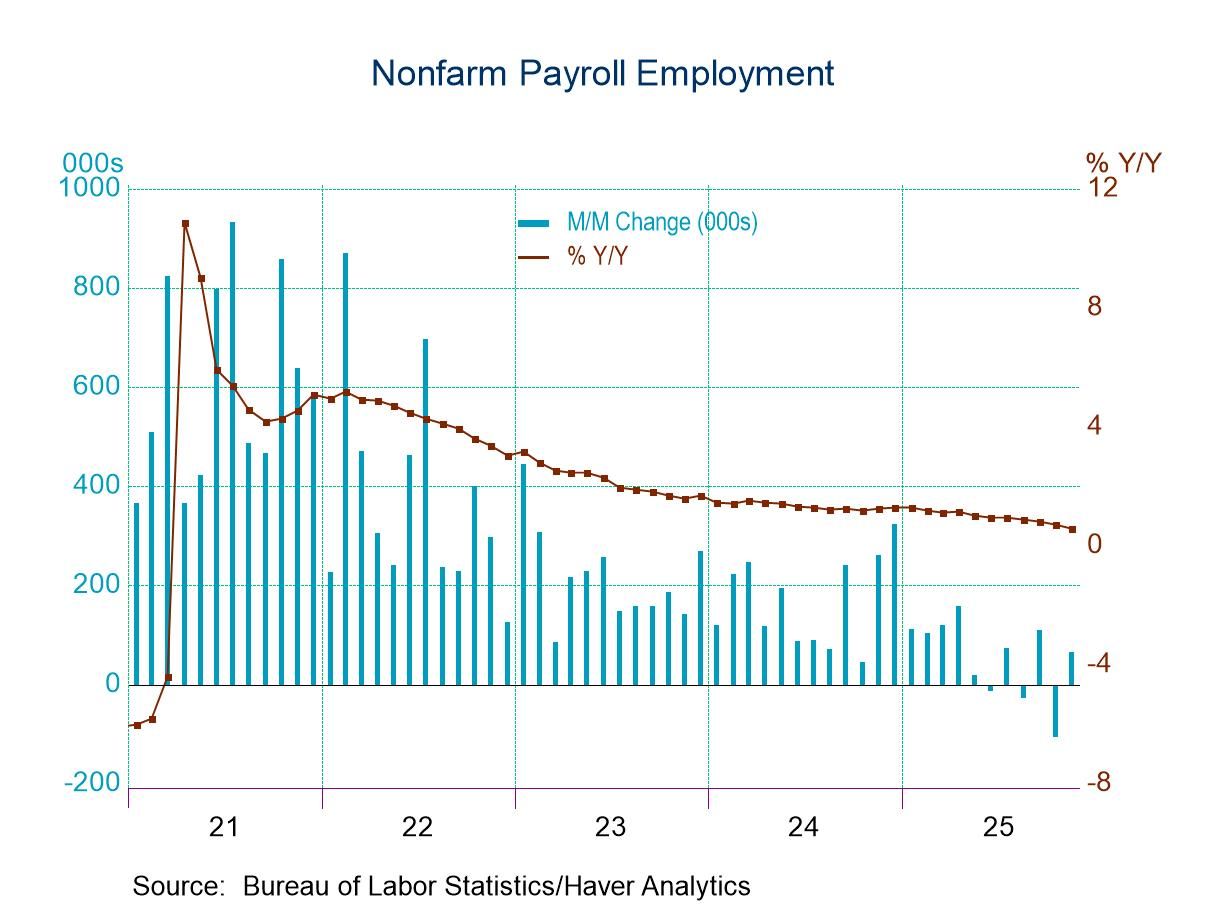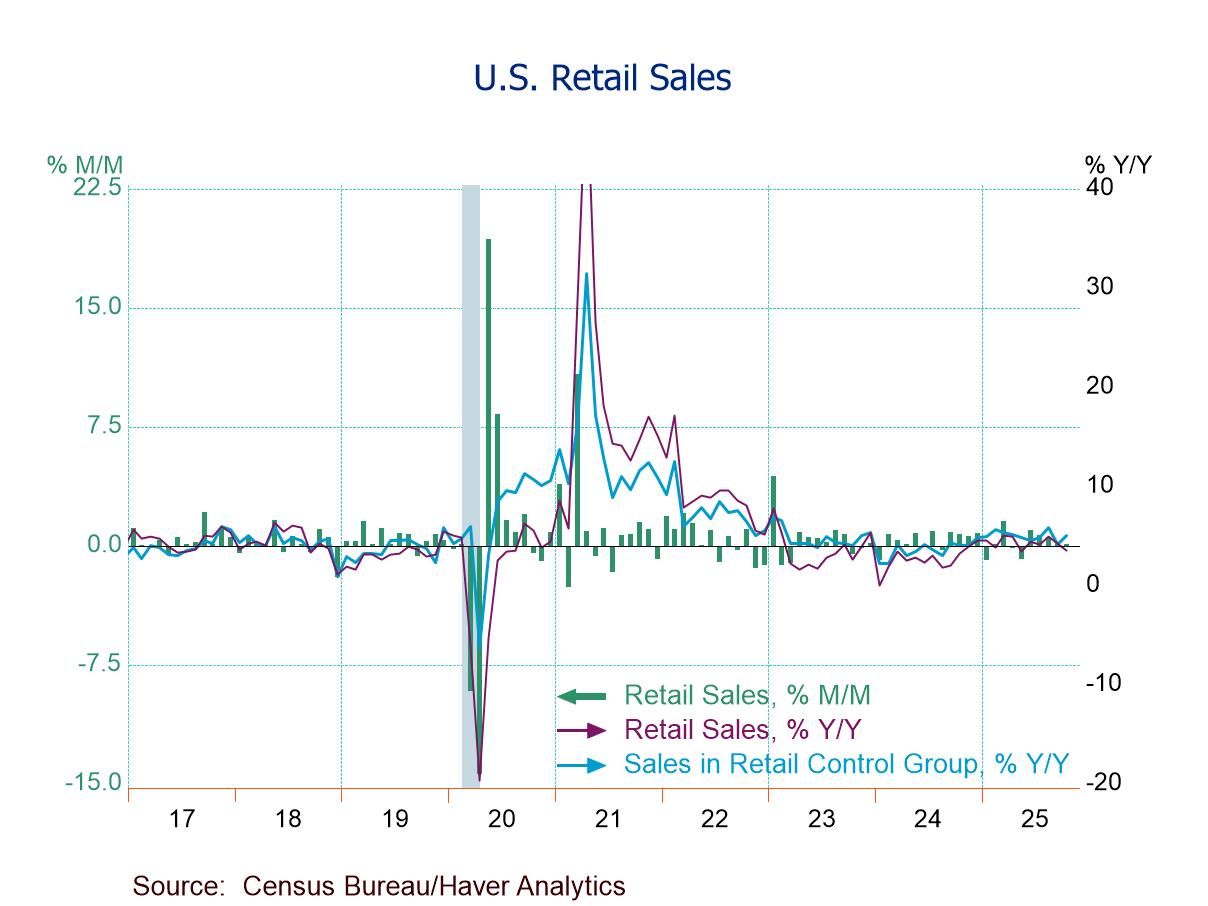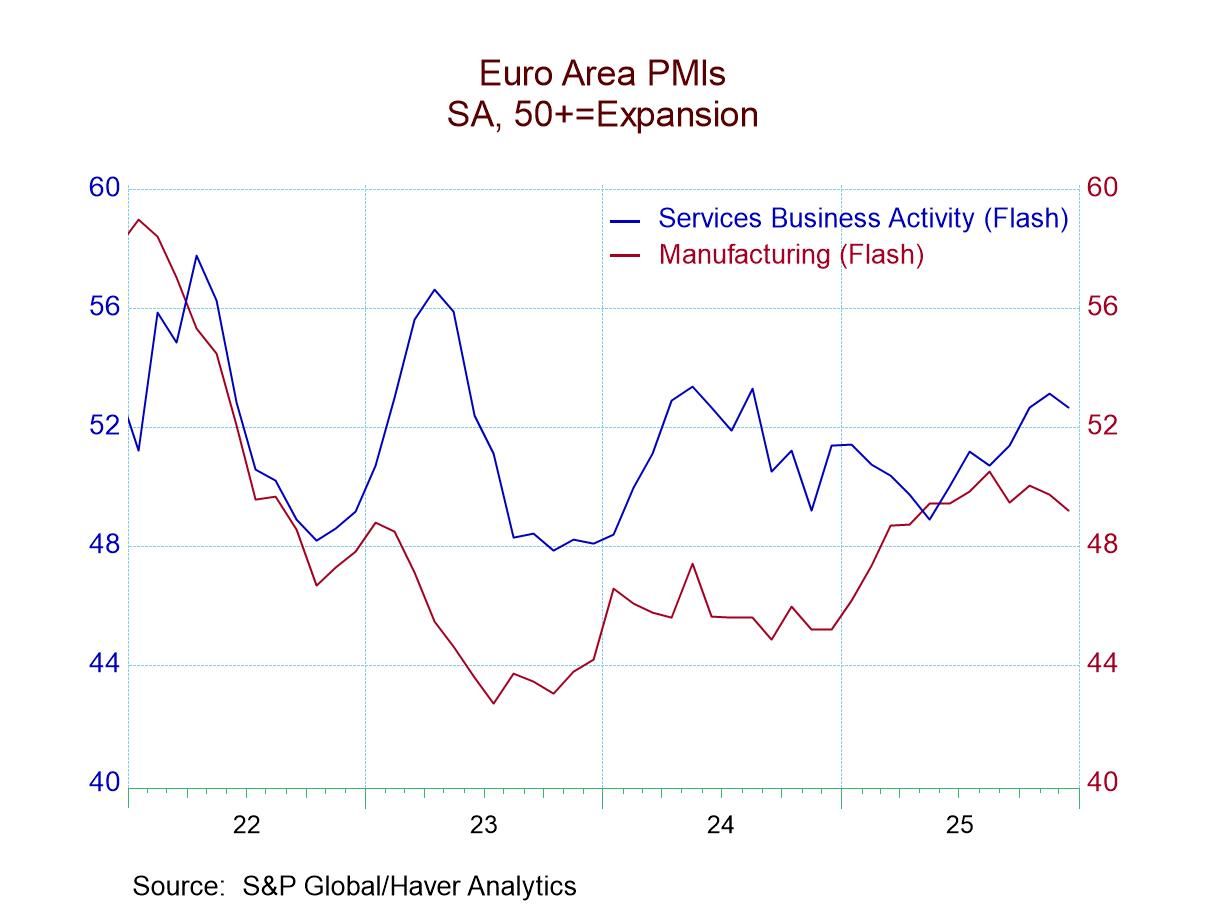 Global| Mar 10 2009
Global| Mar 10 2009IP Drops Sharply in the Euro Area's Early Reports
Summary
IP drops sharply – Record drop in France Industrial production continues to show steep declines in the Zone. France reported the largest decline to day since 1990 when the INSEE series first began. Spain’s volatile index fell by 8.4% [...]

IP drops sharply – Record drop in France
Industrial production continues to show steep declines in the Zone.
France reported the largest decline to day since 1990 when the INSEE
series first began. Spain’s volatile index fell by 8.4% in January.
Italy’s index dropped by 2.8%. For these three countries of the EU,
three month declines in output range from an annual pace of -45% in
Spain to -26% in France. Over the past year Spain is off by 23% while
France and the UK see IP however by about 13%. Quarter-to-date in
January of 2009 IP is falling at an annual rate drop of greater than
20% in each of these countries and as much as -35% in Spain.
Europe is STILL in denial: What? Me worry?
Despite all this and despite new warnings of slower growth and a global
decline in growth from the IMF Europe seems distant. Trichet sounds
upbeat. Weber says there is no reason for the ECBs key lending rate to
go below 1%. Europe has spurned the US request for more stimulus. The
German’s have tuned a cold shoulder to France’s idea of cutting back
the VAT tax. Yet the EU commission, that bastion of fiscal
responsibility, is issuing a warning to Germany about excess spending.
Alfred E Newman meets Euroland: Europe is
not on the same page as the IMF, the World Bank, or the US. Economists
in the US are talking about the prospect of DEPRESSION. In Europe they
are ‘la tee da’ about the downturn treating it like a minor
inconvenience, not even as the powerful recession that it clearly is,
let alone acknowledging the risk of worsening. The EU Commission is
concerned about the Mass-Trick criterion for debt to GDP and about
annual fiscal deficits as if Europe were out of sorts with its fiscal
pledges in a boom year. A boom year it is not. Europe is in denial from
the EU Commission to the ECB itself.
The industrial output index is not out of touch. It is taking
noting lightly, it is taking it on the chin. And that raises some
issues for Europe if policy is not going to be responsive to its
clearly deteriorating situation.
| Main E-zone Countries and UK IP in MFG | |||||||
|---|---|---|---|---|---|---|---|
| Mo/Mo | 3-Mo | 6-mo | 12-mo | Jan-09 | |||
| MFG Only | Jan-09 | Dec-08 | Nov-08 | Jan-09 | Jan-09 | Jan-09 | Q-2-Date |
| France: IP excl Construction | -3.1% | -1.5% | -2.8% | -26.0% | -21.3% | -13.8% | -26.9% |
| Spain | -8.4% | 3.8% | -9.5% | -45.1% | -38.0% | -23.7% | -34.7% |
| UK | -2.8% | -1.9% | -3.0% | -26.8% | -19.9% | -12.8% | -23.2% |
| Mo/Mo are simple percent changes others are at SAARs | |||||||
Robert Brusca
AuthorMore in Author Profile »Robert A. Brusca is Chief Economist of Fact and Opinion Economics, a consulting firm he founded in Manhattan. He has been an economist on Wall Street for over 25 years. He has visited central banking and large institutional clients in over 30 countries in his career as an economist. Mr. Brusca was a Divisional Research Chief at the Federal Reserve Bank of NY (Chief of the International Financial markets Division), a Fed Watcher at Irving Trust and Chief Economist at Nikko Securities International. He is widely quoted and appears in various media. Mr. Brusca holds an MA and Ph.D. in economics from Michigan State University and a BA in Economics from the University of Michigan. His research pursues his strong interests in non aligned policy economics as well as international economics. FAO Economics’ research targets investors to assist them in making better investment decisions in stocks, bonds and in a variety of international assets. The company does not manage money and has no conflicts in giving economic advice.






